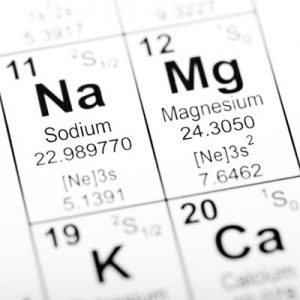
Contains Biotin: brewer’s yeast, liver, soybeans,nuts, oatmeal, lentisl, wheat, barley, bananas, milk, egg-yolk
Water-soluble members of the B vitamin complex vitamin B1 (thiamine), B2 (riboflavin), B12 (cobalamin), folic acid (B9), pantothenic acid (B5), biotin (B7), and niacin (B3) – work during the night as co-enzymes in their recovery functions relating to cognitive ability, the nervous system, the production of energy, and the process of detoxification. Interesting fact: folic acid helps maintain healthy blood cell counts and cell growth in the reproductive system.

Contains resveratrol: Especially grapes, reaspberries, ulberries, plums, peanuts.
The polyphenol Resveratrol is a natural, highly-effective antioxidant derived primarily from the peel and core of grapes, with proven antioxidant effects as a free-radical inhibitor – as are quercetin, catechins and OPC, also part of “red wine medicine.” Resveratrol doesn’t only neutralize reactive oxygen molecules; it’s also important for protecting the blood vessel health of the future mother, as it helps maintain healthy levels of LDL cholesterol in the blood, and as direct consequence works to discourage its storage in the vessel wall.

Contains co-enzyme Q10: Beef, chicken, mutton, lamb, fish and eggs.
CO Q10, a CO-enzyme involved in a variety of biological processes, plays a key role in successful fertilization and implantation. Today’s high-quality raw materials and new scientific developments make high bio-availability, and thus increased efficacy, possible. Like folic acid, biotin is involved in numerous metabolic processes as a co-enzyme. The need for this co-factor is great in the days before a pregnancy as well as during the entire pregnancy and lactation period.

Important minerals: magnesium, copper, zinc, iron and potassium
Important minerals and trace elements such as magnesium, copper, zinc, iron, as well as omega 3-fatty acids round off this formula. They are important because, for example, a lack of magnesium is involved in many pregnancy complications.

Omega-3 fatty acids: in fish as well as in fish oils obtained from mackerel, salmon, sardines, tuna and herring, and in algae
Omega-3 fatty acids are used by the body for many different vital functions. As a component of the cell walls, they are indispensable for optimal development of the brain in the womb, and for the formation of nerve cells. Beyond that, omega-3 fatty acids support healthy circulation and blood pressure within normal ranges, as well as supporting healthy cholesterol levels already within normal ranges – extremely important for a healthy cardiovascular system. Two of the most important essential fatty acids are DHA (docosahexaenoic acid) and EPA (eicosapentaenoic acid). The body cannot produce these, so they must therefore be supplied. If they are present in sufficient quantity before a pregnancy occurs, the probability of a successful pregnancy rises significantly.
